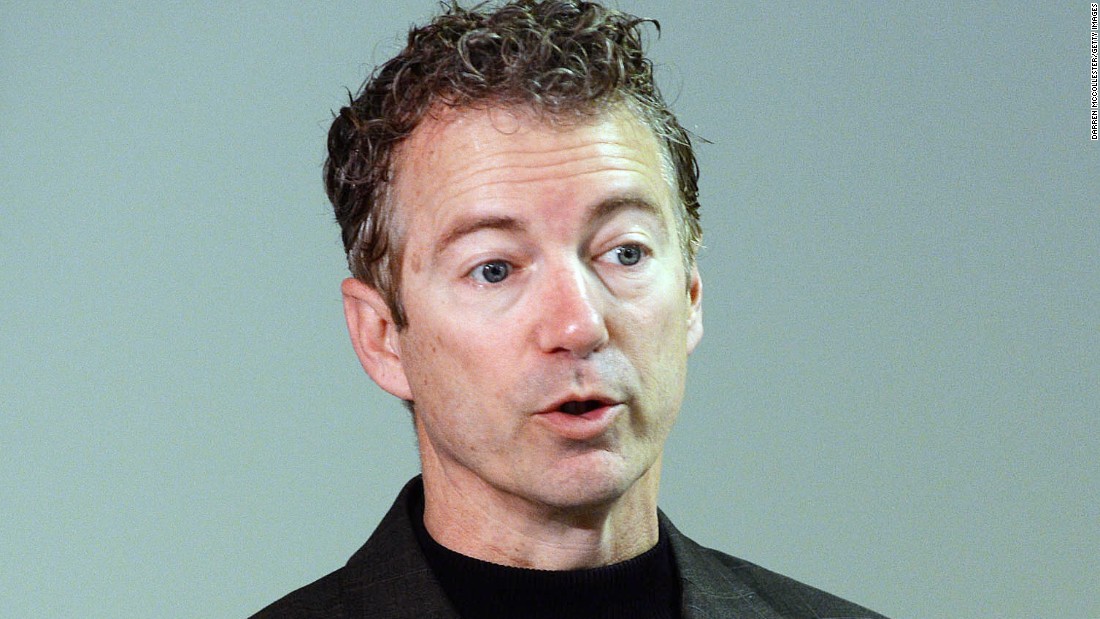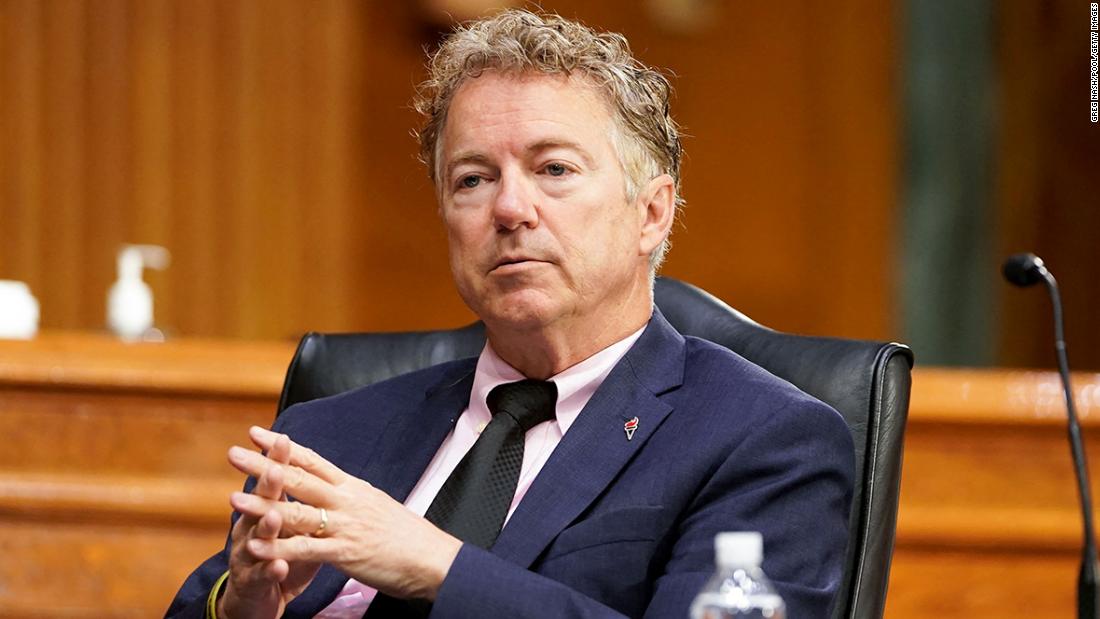Senator Rand Paul has emerged as one of the most influential figures in contemporary American politics, captivating audiences with his libertarian principles and commitment to limited government. As a prominent Republican senator from Kentucky, Rand Paul's career spans decades of public service, marked by his unwavering dedication to individual freedoms and fiscal responsibility. His unique approach to governance has not only reshaped the political landscape but also inspired a new generation of leaders to rethink traditional party lines.
Rand Paul's rise to prominence began with his grassroots campaign for the U.S. Senate, where he successfully mobilized a coalition of conservatives and libertarians. His ability to articulate complex policy issues in clear, concise terms has earned him a reputation as a formidable intellectual force in Washington. Through his legislative work and public advocacy, Paul has consistently championed causes that prioritize personal liberty and economic freedom.
This comprehensive exploration delves into the life and career of Rand Paul, examining his contributions to American politics and the enduring impact of his principles. From his early years as a physician to his current role as a senior senator, this article provides an in-depth analysis of his accomplishments, challenges, and the legacy he continues to build.
Read also:Lindsey Marie Morgan The Rising Star In The Entertainment World
Table of Contents
- Biography of Rand Paul
- Early Life and Education
- Political Career
- Key Issues and Policy Focus
- Rand Paul's Political Legacy
- Challenges and Controversies
- Personal Life and Family
- Influence on Modern Politics
- Future Prospects and Aspirations
- Conclusion
Biography of Rand Paul
Early Life and Education
Rand Paul was born on January 6, 1963, in Pittsburgh, Pennsylvania. Growing up in a family deeply rooted in political activism, Paul developed an early interest in public service and libertarian ideals. His father, Ron Paul, a prominent figure in the libertarian movement, significantly influenced his political philosophy. Rand Paul pursued his education with distinction, earning a Bachelor of Science in Biology from Baylor University in 1986.
Following his undergraduate studies, Paul attended Duke University School of Medicine, where he graduated with honors in 1990. His medical background provided him with a unique perspective on healthcare policy, which later became a cornerstone of his political career. After completing his medical training, Rand Paul practiced ophthalmology in Bowling Green, Kentucky, before transitioning into politics.
Political Career
Rand Paul's political journey began with his successful bid for the U.S. Senate in 2010. Running as the Tea Party candidate, he defeated the establishment Republican in the primary and went on to secure a decisive victory in the general election. As a senator, Paul quickly established himself as a leading voice for limited government and individual rights.
Key Legislative Achievements
Throughout his tenure, Rand Paul has championed several landmark pieces of legislation:
- Introduced the Audit the Fed bill to increase transparency in Federal Reserve operations.
- Sponsored the Fourth Amendment Protection Act to safeguard Americans' privacy rights.
- Advocated for criminal justice reform through the introduction of the REDEEM Act.
His efforts have earned both praise and criticism, reflecting his commitment to challenging the status quo and advocating for policies that align with his libertarian principles.
Key Issues and Policy Focus
Rand Paul's policy agenda centers around several core issues that define his approach to governance:
Read also:Aime Leon Dore A Comprehensive Exploration Of The Iconic Fashion Brand
Privacy and Civil Liberties
As a staunch defender of civil liberties, Rand Paul has consistently opposed government overreach, particularly in the realm of surveillance. His opposition to the NSA's bulk data collection program brought national attention to privacy concerns, leading to significant reforms in intelligence operations.
Fiscal Responsibility
Paul's commitment to fiscal conservatism is evident in his advocacy for reducing federal spending and balancing the budget. He has introduced numerous proposals aimed at cutting wasteful expenditures and promoting economic growth through tax reform.
Rand Paul's Political Legacy
The legacy of Rand Paul extends beyond his legislative accomplishments. As a thought leader in the Republican Party, he has played a pivotal role in shaping the party's platform on issues ranging from foreign policy to healthcare reform. His influence is particularly evident in the growing acceptance of libertarian principles within conservative circles.
Impact on the Republican Party
Rand Paul's emphasis on individual liberty and limited government has challenged traditional Republican orthodoxy, encouraging a broader debate about the proper role of government in society. His ability to bridge ideological divides has positioned him as a unifying figure within the party.
Challenges and Controversies
Despite his many achievements, Rand Paul's career has not been without controversy. Critics have accused him of holding inconsistent positions on certain issues, while others have questioned the feasibility of his policy proposals. However, Paul maintains that his principles remain steadfast, and his approach to governance reflects the complexities of modern political challenges.
Addressing Criticism
In response to his detractors, Paul emphasizes the importance of principled leadership in an era of increasing polarization. He argues that the solutions to America's problems require bold thinking and a willingness to challenge conventional wisdom.
Personal Life and Family
Rand Paul is married to Kelley Paul, and together they have five children. His family life remains a central aspect of his personal identity, influencing his commitment to policies that promote family values and community engagement. Below is a summary of his personal information:
| Full Name | Randal Howard Paul |
|---|---|
| Date of Birth | January 6, 1963 |
| Spouse | Kelley Paul |
| Children | Five |
| Profession | Ophthalmologist and U.S. Senator |
Influence on Modern Politics
Rand Paul's impact on modern politics extends beyond his legislative achievements. As a prominent advocate for libertarian principles, he has inspired a new generation of leaders to embrace policies that prioritize individual freedom and economic opportunity. His influence is particularly evident in the growing acceptance of libertarian ideas within mainstream political discourse.
Shaping the Future of Governance
Paul's vision for governance emphasizes the importance of empowering individuals and communities to solve problems rather than relying on centralized authority. This approach resonates with many Americans who seek more responsive and accountable government.
Future Prospects and Aspirations
Looking ahead, Rand Paul remains committed to advancing the principles he has championed throughout his career. Whether through continued service in the Senate or future endeavors, his dedication to limited government and individual rights will undoubtedly shape the trajectory of American politics for years to come.
Potential Presidential Ambitions
Speculation about Rand Paul's potential presidential bid has persisted since his 2016 campaign. While he has not explicitly ruled out another run, his focus remains on advancing his policy agenda and building a lasting legacy in the Senate.
Conclusion
Rand Paul's contributions to American politics have redefined the landscape of governance, challenging conventional wisdom and inspiring a new generation of leaders. Through his unwavering commitment to individual freedoms and fiscal responsibility, he has established himself as a formidable force in Washington. As the political environment continues to evolve, Paul's influence will undoubtedly shape the future of American governance.
We invite you to share your thoughts and insights in the comments section below. Your feedback helps us provide more valuable content. For further reading, explore our other articles on prominent political figures and their impact on modern society. Together, let's continue the conversation about the future of American politics.
Sources:
- Paul, R. (2015). Government bullies: How everyday Americans are being crushed by out-of-control government. Regnery Publishing.
- United States Senate. (n.d.). Rand Paul. Retrieved from [Official Senate Website](https://www.randpaul.senate.gov)
- Friedman, M., & Friedman, R. (1980). Free to choose: A personal statement. Harcourt Brace Jovanovich.


